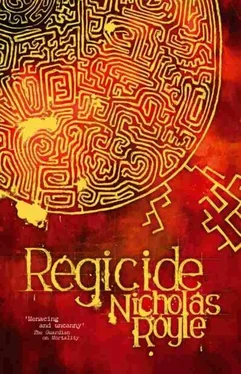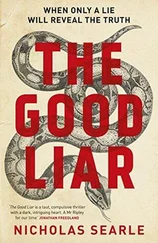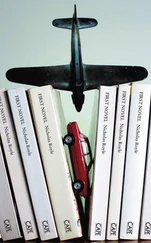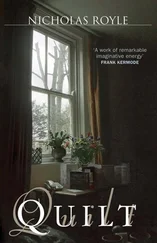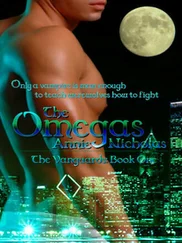He opened his mouth wider and several of the larvae tipped out, wriggling, falling down the front of my shirt. He was pressing closer to meet my lips when his head fell forward and thumped against my breastbone. I noticed the others collapsing. Their little attacks ceased and they rolled off me. I pushed the tall man away and the maggots spilled out of his mouth onto the floor of the wagon. I approached the side of the truck and peered out.
I saw a galaxy of red lights hanging seemingly in mid-air and wondered if instead of crossing back into the real world I had entered some even more bizarre territory. But as my eyes grew accustomed to the darkness I could make out vertical masts and diagonal stays. The lights were attached to the masts, which occupied a vast area on the right of the line. There was a road also. A vague memory plucked at the back of my mind. I’d seen the masts before.
It came to me: Rugby radio masts. If that were the case, the train would be pulling into Rugby station any minute. I opened the catch on the gate and made a wider crack in the side of the wagon. I craned my neck to see up the line. I could see lights and a station approaching.
I knew, however, that even if the train stopped or slowed down enough for me to jump, I wouldn’t be able to. I might have seen no sign of them, but the train had to be carrying guards whose job it would be to unload the corpses. And if they didn’t get me, I’d still be stuck in Rugby in the middle of the night.
I fastened the gate and crouched down as the train rumbled under the vast glass canopy of Rugby station. The platforms were lonely and wet but they were part of my world. I wanted to get out, bend down and kiss them. The train slowed down and stopped, presumably awaiting a green light. I watched through the cracks as a British Rail guard sauntered down the platform, tapping his whistle against the side of his leg. He stopped fifteen yards from my truck, took off his cap and smoothed his hand over his balding head, yawning. I wondered about trying to call him over but the train jerked into motion again and we trundled out of the station.
The train accelerated, heading north. It blasted through Coventry station without slowing down, skittered over the level crossings at Canley and Tile Hill, then raced through cuttings, a tunnel and more deep cuttings and another tiny station before easing off in the approach to Birmingham International. Even here, though, there was no command to halt and the train thundered on towards the heart of Birmingham, under one road, over the next, another level crossing, a blink of a station, more bridges and tunnels, long streets of houses rising on either side then falling away and cars suddenly passing beneath the moss-clad stone arches under the tracks. Through Stechford, and past a bleak ill-lit park on the right, and finally the driver applied the brakes. The cattle wagons rolled forward, under three more roads, past a works depot on the right. Less than a mile away M6 traffic whipped through a busy interchange. Amid a great clanking of iron and steel, the train halted.
In the sudden stillness I listened to the hum of the motorway and the stuttering hum of the diesel. In between the motorway and the railway were several gasholders, three of them bunched up close to the M6 — I’d passed them dozens of times driving up to Manchester — and two hemmed in between a canal on the left, a scraggy little river, the railway line where I was sitting, and another line which came out from underneath and veered off to the right.
Of these two gasholders — both were the spiral-guided design — one was full and the other still half-empty.
Why did I think of it as still half-empty rather than only half-full?
I heard movement on the line ahead; men jumping down to the chippings and walking down the track. I thought I knew what they were going to do, so I took my chance. It was risky because I couldn’t be sure they wouldn’t have posted a guard on the off-side of the train. I unfastened the gate on the left side of the wagon, peeked out at the night and the empty southbound track, and lowered myself slowly onto a sleeper. I reached up to close the gate then scuttled away down the line, stepping only on the sleepers to reduce noise, and when I reached the end of the train I cut across the track and hid in the undergrowth at the side of the line. Thanks to the slight curvature of the track I had a perfect view of what was going on.
A gang of workers dressed in dark boilersuits had started unloading the wagons. They passed the corpses over their heads in a human chain. In a gap in the undergrowth a large works vehicle had backed up as close as it could get to the line. The bodies were tossed into the back of this vehicle. Some had stiffened and slid around on top of others like a load of discarded shop-window dummies; others were still pliable and their arms and legs cracked and bent this way or that as more were thrown on the pile.
The men emptied at least a dozen wagons and I guessed there must have been at least twenty-five bodies in my own cattle truck. When the first works vehicle could carry no more it drove off down the slope and another took its place. I watched the first vehicle as it rumbled down over the rough ground towards the gasholders. It stopped by a cluster of small outbuildings and another team of workers emerged from the darkness to unload the cargo. Behind the outbuildings were several pipes leading up to the half-empty gasholder. I watched disbelieving as the bodies were carried one at a time and inserted into the broadest of these pipes. It was a slow process: after seven or eight bodies had been tipped into the pipe, the workers could push them no further along inside and they stopped, replaced a cover over the gap in the pipe and opened up a faucet several yards up the pipe. After a few seconds the faucet was closed again and the cover taken off the gap and more corpses stuffed in.
When they had finished, the gasholder seemed to have risen very slightly, but it was almost impossible to tell. There would be room for hundreds of thousands of bodies so it was unlikely a few hundred would make much of an impression.
The teams of men strolled back up the slope in an almost leisurely way and got back on the train, which started moving straight away, back the way it had come, the locomotive pushing from behind.
I crouched down even further in the bushes and watched as the train passed over my head. In the last wagon I saw a group of the corpse carriers. They’d left the truck gate open and were smoking cigarettes, the ends glowing like fireflies as the men stared out into the rushing night. One took a final pull and cast his hot coal into space. It arced through the velvet darkness and landed in the vegetation an inch or two from my face. I held my breath, waiting for the sound of the driver slamming on his brakes, but it didn’t come.
Because I reasoned there was nothing to be gained from a closer inspection of the gasholder or its feeder pipe — and because I was too fucking freaked out to go near it — I crossed the line and fought my way through a set of allotments to get to a road where I flagged down the first minicab I saw and asked the driver to take me into Birmingham.
I was exhausted and my instinct was to go home and collapse, but I was worried about Annie Risk, so I caught the first train from New Street to Manchester. There wasn’t time to ring before it left. On the train I fell asleep. If I dreamed at all I woke up when the train braked at a red light outside Piccadilly with no recollection of having done so. I stared out of the window and saw the two giant gasholders over beyond Ancoats. I shivered and pulled my jacket around me. My clothes had dried out after my dip in the canal but I had not warmed up.
I walked down the Piccadilly ramp and crossed the tramlines, having decided to walk to Annie’s so I had a chance to get my head together. It wasn’t that far, a couple of miles. Within minutes I was marching past the sprawling university buildings. It was late and the streets were deserted. I took in my surroundings, relieved to be back in the real world. Even the wind on my face felt different, slightly cooler than in the City. I plunged into the grid of terraced streets and back entries that was Moss Side.
Читать дальше
